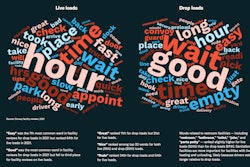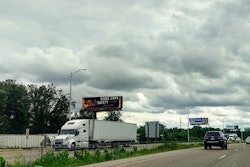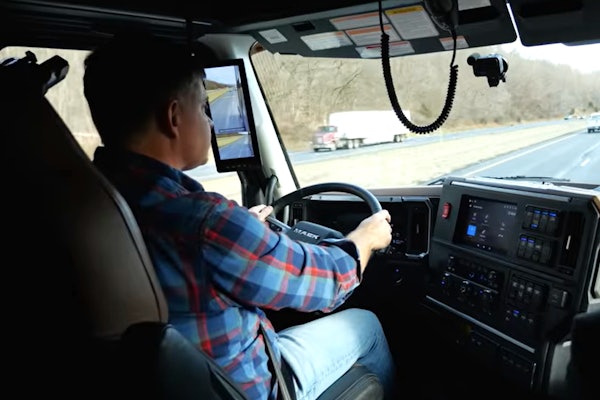Trucking news and briefs for Friday, Jan. 28, 2022:
Legal challenge to HOS changes ongoing
A legal challenge to the Federal Motor Carrier Safety Administration’s 2020 hours of service changes was reignited recently, as the U.S. Court of Appeals for the District of Columbia began accepting petitions more than a year after the lawsuit was initially filed. The case was placed in abeyance in early 2021 to allow the new administration to become familiar with the updated regulations, and it was resumed in October.
The International Brotherhood of Teamsters, Advocates for Highway and Auto Safety, Citizens for Reliable and Safe Highways and Parents Against Tired Truckers sued FMCSA over the changes to the regulations, claiming the updated HOS rules are not as safe as the rules before the changes took effect.
Specifically, the groups say that, in changing the 30-minute break rules to allow the break to be taken on-duty rather than requiring it to be taken off-duty, FMCSA did “not account for fatigue from non-driving work or consider the effect of the changes to the 30-minute break requirement on the benefits that FMCSA attributed to that requirement when it adopted the requirement in 2011.”
The petition also calls changes to the short-haul exemption into question. The revised HOS regulations extended the allowable operating radius and daily on-duty hours for drivers to be able to operate under the short-haul logbook waiver. The old rules exempted drivers operating within a 100 air-mile radius of their base and gave them a 12-hour on-duty limit. The HOS changes extended the radius to 150 air miles and allowed drivers to work 14 hours a day and still receive the logbook exemption.

“The final rule does not contain a rational explanation why increasing the number of drivers who are exempt from documenting their driving hours – and providing those drivers with a longer workday and larger driving radius – will not affect compliance with hours-of-service rules,” the groups said.
FMCSA responded to the groups’ concerns, saying they “failed to provide the court with sufficient evidence” to support their claims.
The Owner-Operator Independent Drivers Association, filing comments on FMCSA’s behalf, said the changes to the 30-minute break and short-haul exemption rules “represent common sense updates to the hours-of-service rules that significantly increase flexibility for commercial truck drivers while maintaining safety at least equivalent to previous versions of these rules. In adopting the final rule, the agency relied on ample evidence from the administrative record demonstrating that more hours-of-service flexibility means more efficient trips and less stress for drivers, improving safety on the road.”
The next step in the rule is for the Teamsters and safety groups to file a response to FMCSA and OOIDA. Final briefs for the case are due March 8.
[Related: The No. 1 barrier to truckers' efficient hours utilization]
Elon Musk, Russell Brand back Canadian protest convoy
Tesla CEO and world's richest man Elon Musk on Thursday tweeted in support of the Canadian truckers convoying to protest the country's vaccine mandate.
"Canadian truckers rule," Musk simply said. Actor and comedian Russell Brand wasn't far behind, releasing a video entitled "Truckers Convoy: Why The Mainstream Media Blackout?!" to his 4.8 million YouTube subscribers the same day.
The Freedom Convoy, as it's now known, has raised around $5 million in support of truckers headed to the Canadian capital of Ottawa to protest the country's COVID lockdowns, border vaccine mandate, and other grievances.
Canadian Prime Minister Justin Trudeau called the convoy a "small fringe minority who are on the way to Ottawa who are holding unacceptable views."
The Canadian Trucking Association estimates that the Canadian trucking industry is expecting a loss of 12,000-16,000 (10%-15%) cross-border truck drivers due to the mandate.
The U.S. currently requires non-U.S. citizens entering the country for essential or non-essential travel to "be fully vaccinated against COVID-19 and be prepared to show related proof of vaccination.”










